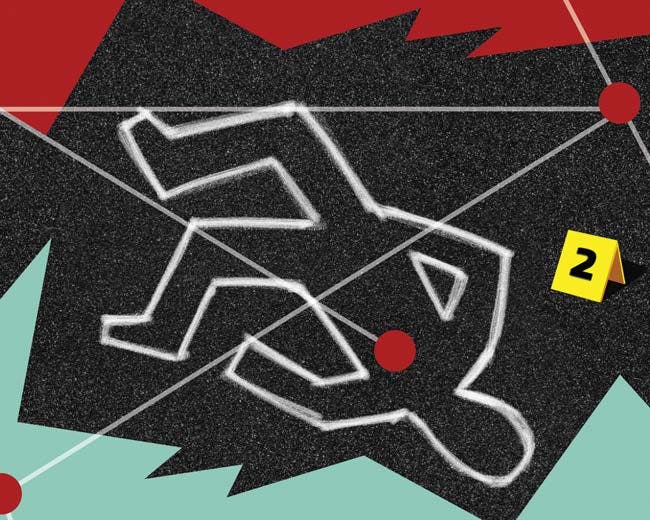INTRODUCTION
About this Exhibition
High-profile murder cases and popular television programs such as CSI, Bones, and Forensics Files have brought the laboratory work of forensic scientists into mainstream popular culture. Connecting the Dots explores the history of several disciplines within forensic science: fingerprints, chemistry, biology, firearms, photography, and trace evidence.
The exhibition also examines two important courts cases, Frye v. United States in 1923 and Daubert v. Merrell Dow Pharmaceuticals in 1993, which have shaped how courts admit forensic science as evidence.
The exhibition was curated by Eric Ward, Vice President for Public Programs at the Linda Hall Library, and was on display at the Linda Hall Library from March 17 to August 25, 2017. The online exhibition is funded by the Ewing Marion Kauffman Foundation. Exhibition content is solely the responsibility of the Linda Hall Library.

